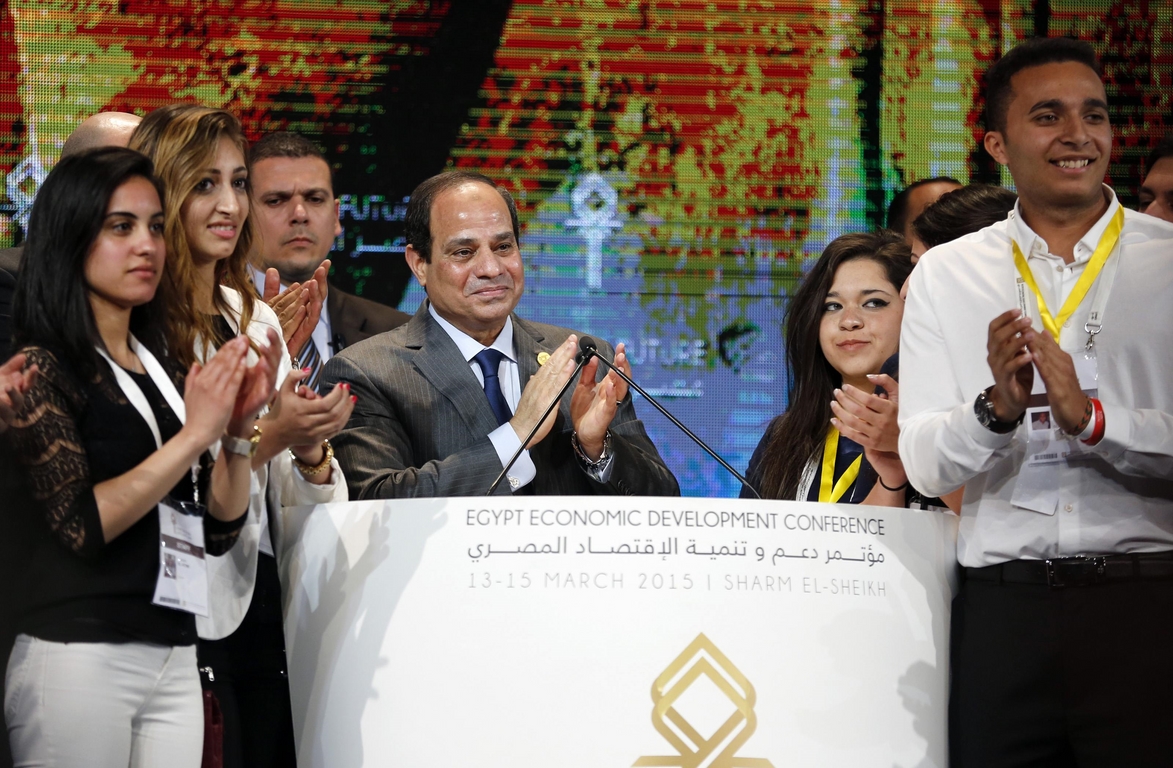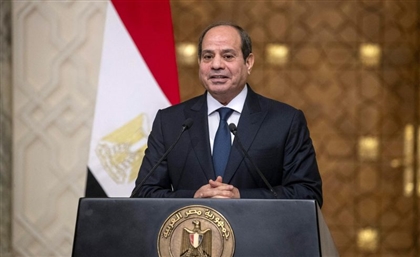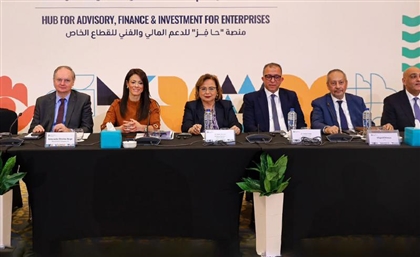How #EEDC Will Affect Every Egyptian
We speak to young entrepreneurs Mohamed Nagaty and Karim Diab of Eat Franchise and NOG Investments about the Egyptian economy post-EEDC.

While headlines across the country and beyond speak of the millions and billions of dollars raised by Egypt at the recent economic conference, many have taken these figures with a grain of salt as questions of how these business deals will positively affect the average Egyptian begin to be raised. However, two young entrepreneurs, Mohamed Nagaty and Karim Diab, have high hopes for how these developments will affect startups and small and medium-sized businesses, as the world looks to Egypt’s future with as much anticipation as the local market. Having joined forces recently, the two businessmen see bright prospects for their own ventures, EAT Franchise and NOG Investments’ food and beverage arm, which owns and operates 14 food and beverage outlets in Egypt, including Sidewalk, Golio’s, Koy, 3enab and Goodies. Speaking to us right after the EEDC, the duo seemed ecstatic at economic prospects not just for their businesses but for Egypt as a whole. “If you went to Dubai in 2002 and then again in 2007, it was a whole new place,” starts Nagaty. “I expect that same rapid pace of development to occur in Egypt too, after the deals and contracts signed last week. This investment will trickle down and boost small and medium sized business and, eventually, to your average employee. ”
“Having the CEOs and heads of multinational companies attending EEDC really showed a commitment to Egypt’s economy that no one had expected, especially given the waves of bombings we’d seen in recent weeks,” says Diab. Solving this security crisis and having the EEDC in Sharm El Sheikh go off without a hitch is the first step to stablising an economy, according to Nagaty, a self-confessed optimist. “The next step is to have people believe in change. The last four years have been economically and emotionally draining, but we have to battle that, whether you’re an employee, employer, businessman or investor,” he says. Pointing to some of the most successful business models that have flourished in the last few years, despite the drain, Nagaty spotlights the likes of Bey2ollak – the ever-popular crowd-sourced traffic app – for beating the odds; El Menus – the most popular digital food database; as well as our own mothership, MO4Network. “These medium sized enterprises have gone against the grain and profited despite turmoil, continuing to grow and expand. These are the business models that should be replicated, and more international investment and media interest can only boost that,” he explains.
Despite being optimistic, Nagaty and Diab do understand that there are still challenges ahead, but that nothing can compete with Egyptian resilience. “I think this time round, the Egyptian people are willing. Everyone from the small shop owner to the government employee to the investor is willing to put the work in to get Egypt to the next level. It’s not like the past, you can really see a new vibe this time,” says Diab. Doing business in Egypt has never been straightforward, but Diab points to the restructuring of investment laws as a step in the right direction from the government. “Usually, it takes three to four months just to get the correct license for a manufacturing facility, for example, but the reforms being put in place will cut that to 14 days. Another important development that has come to light since the EEDC is the willingness of Egypt to give undeveloped land to big investors on the conditions that it’s put to good use and developed with the correct infrastructure,” explains Diab. All of these changes not only make it easier for multinational and foreign companies to enter the Egyptian market, but will, in turn create jobs, make the market more competitive and inspire entrepreneurship.
Undeveloped land and poorly planned and executed infrastructure is a problem that has plagued modern Egypt for decades now, but the commitment to create Egypt’s ‘New Capital’ by the government aims to solve that within five years – a timescale both Nagaty and Diab, along with the relevant ministries, believe to be realistic given the UAE’s experience in rapid, upscale urban development. Tasked with creating the new capital, the UAE’s commitment to the project has been overwhelming and the promise of a shiny, new well-planned city is on the horizon.
With Egypt only owning 24% of the new capital project, the door for international companies to invest in Egypt is wide open and the recent commitments made at the EEDC have already made their impact as the country begins to adopt codes of conduct and best practices required by well-established global companies. With the likes of Siemens’ CEO negotiating an investment of up to $10.5 billion with president Sisi himself, to create both traditional and sustainable energy power plants, and British Petroleum confirming a $12 billion, the ripple effects are sure to hit local, homegrown businesses soon. “With all of this attention and investment, it’s time for local companies to innovate and reach international standards. Then, they can attract investment themselves,” says Nagaty. Meanwhile, Diab points to a trend we’ve all noticed in the last few years that when a local company becomes successful, a hundred copycats pop up and saturate the market, making for an oversupply of any given product and reducing profits. To tackle this problem and keep innovation and uniqueness top of mind for any potential business, Diab says “We need to replicate other countries’ economic success, not replicate businesses that already exist. Look at Korea, which used early education tools that created innovative products later on, or India, which is the source of many innovative digital ideas or Brazil, which made a huge improvement in the economy in the last decade. The opening up of investment opportunities and the restructuring of the laws and infrastructure that facilitates this is what reshaped their economy and that’s what Egypt needs to do.”
With all the developments in Egypt’s economy, Diab and Nagaty predict that we’ll see many more local companies be officially traded on the Egyptian Stock Exchange, with IPOs opening up the prosperity to every Egyptian looking to make a personal investment. As for entrepreneurship, they see Egypt as a fertile land for food and beverage companies to keep succeeding – something they’ve experienced themselves as their own brands continue to grow in both presence and profit. Outside of F&B and the massive energy and development deals that have been sealed in the last weeks, the experienced professionals tip the IT, online and digital market to become the next big thing in Egypt’s economy, expressing the region’s appetite for technology products as major investment and employment opportunities in the near future. You heard it here first! #PostEEDC
- Previous Article Video: Egyptian Teacher Cuts Student Hair For Being Unveiled
- Next Article Dust: 'The Only Difference Between Paris & Cairo'
























